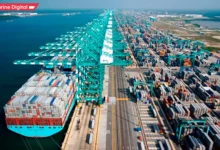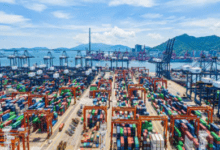
10 Factors Affecting Migration in Nigeria
Factors Affecting Migration In Nigeria – Migration in Nigeria is a complex phenomenon that is influenced by a variety of factors, including economic opportunities, political instability, and natural disasters. The country has a large population of internal migrants, who move within the country for various reasons, as well as a significant number of international migrants, who left Nigeria in search of better opportunities abroad.
The migration patterns in Nigeria have also been shaped by the country’s colonial history and its role as a major destination for West African migrants. Despite the challenges that migration can bring, it also has the potential to bring economic and social benefits to both the migrants and their communities of origin and destination.
👉 Relocate to Canada Today!
Live, Study and Work in Canada. No Payment is Required! Hurry Now click here to Apply >> Immigrate to CanadaRead Also: Factors Affecting Library Development in Nigeria
What is Migration?
Migration is the movement of people from one place to another, typically to a new country or region, to live or work. This can be done for a variety of reasons, including economic opportunities, political instability, or natural disasters. Migration can also refer to the movement of animals, such as birds during seasonal changes.
Address of Immigration Headquarters in Nigeria
The Nigerian Immigration Service (NIS) is responsible for immigration in Nigeria. Their headquarters is located in Abuja, Nigeria. The address is: Factors Affecting Migration in Nigeria
Nigerian Immigration Service
mmigration Headquarters
Area 1, Garki, Abuja Information Guide Nigeria
Nigeria
Management Department of Immigration in Nigeria
The Nigeria Immigration Service (NIS) is the government agency responsible for managing immigration in Nigeria. It is responsible for issuing and renewing various travel documents such as passports, visas, and permits. It also manages the country’s border security and controls the entry and exit of foreign nationals into Nigeria. NIS also works closely with other agencies such as the Nigerian Customs Service and the Nigerian Police Force to ensure the smooth flow of people and goods across the country’s borders.
The NIS is headed by a Comptroller General who is appointed by the President and is responsible for the overall management of the agency. The Comptroller General reports to the Minister of Interior and works closely with other government agencies to implement immigration policies and procedures. The NIS is divided into several departments such as the Passport and Visa Departments, the Border Control Department, and the Alien and Migration Department. These departments are responsible for specific areas of immigration management and work together to ensure that the agency’s mandate is fulfilled.
Read Also: Various Factors Affecting Health Globally And in Nigeria
Who is the Comptroller General of Immigration?
Since its establishment in 1963, the NIS has had a total of 3 Chief Federal Immigration Officers, 3 Directors of Immigration, 2 Acting Comptrollers General, and 8 substantive Comptrollers General. The current Comptroller General is Muhammad Babandede. Information Guide Nigeria
👉 Relocate to Canada Today!
Live, Study and Work in Canada. No Payment is Required! Hurry Now click here to Apply >> Immigrate to CanadaWho is the Acting Comptroller General of Immigration in Nigeria?
The acting comptroller-general of the Nigeria Immigration Service (NIS) is Isa Idris, and he has approved the assignment of 69 senior officers to various zones and commands throughout Nigeria.
Types of Migration in Nigeria
There are several types of migration in Nigeria, including:
- Rural-urban Migration: This occurs when people move from rural areas to urban centers in search of better economic opportunities and improved living conditions.
- International Migration: This occurs when people leave Nigeria to live in other countries, often for economic or educational reasons.
- Internal Migration: This occurs when people move within Nigeria, often for similar reasons as rural-urban migration.
- Forced Migration: This occurs when people are forced to leave their homes due to conflict, persecution, or natural disasters. Romantic Love Messages
- Return Migration: This occurs when people who have migrated previously return to their home country.
- Seasonal Migration: This occurs when people move to different areas to take advantage of seasonal work opportunities, such as farming or fishing.
- Circular Migration: This occurs when people move back and forth between two or more locations for different reasons.
Read Also: Environmental Factors Affecting Agricultural Production in Nigeria
Advantages of Migration in Nigeria
Migration in Nigeria can have several advantages, including:
- Economic Opportunities: Migration can provide individuals with access to better job prospects and higher wages.
- Educational Opportunities: Moving to a new area can provide individuals and families with access to better schools and education. Duties of an Electronic Engineer
- Cultural Enrichment: Migration can expose individuals to new cultures and ways of life, leading to a greater understanding and appreciation of diversity.
- Improved Living Conditions: Moving to a new area can provide individuals and families with access to better housing, healthcare, and other necessities.
- Network Building: Migration can provide people with the opportunity to build new social and professional networks, which can be beneficial for personal and career growth.
Migration and the Nigerian Society
Nigeria has a long history of migration, both within the country and internationally. Historically, internal migration has been driven by a variety of factors, including economic opportunities, political instability, and ethnic and religious conflicts. For example, during the colonial period, many Nigerians moved from rural areas to urban centers in search of work. JAMB Portal
In the post-colonial period, economic opportunities continued to drive migration, with many Nigerians moving from the rural north to the urban south in search of better economic opportunities. This migration has also been driven by conflicts and crises, such as the Biafra war in the late 1960s and the ongoing Boko Haram insurgency in the northeast. Duties of a Production Manager
Internationally, Nigeria has also had a long history of migration. Many Nigerians have emigrated in search of better economic opportunities and education, particularly to countries in Europe and North America. Additionally, there has been a significant migration of Nigerians to other African countries, particularly to neighboring countries such as Ghana and Cameroon.
It’s also worth mentioning that Nigeria has also been a destination for migrants from other countries in West Africa, particularly those fleeing conflicts and economic instability in their own countries.
Read Also: Environmental Factors Affecting Business In Nigeria
Various Factors Affecting Migration in Nigeria
Several factors affect migration in Nigeria, including
- Economic Factors: Economic conditions, such as poverty, unemployment, and lack of opportunities, drive people to migrate in search of better economic prospects.
- Political Factors: Political instability, violence, and persecution can force individuals to flee their homes and migrate to safer areas.
- Environmental Factors: Natural disasters, such as floods and droughts, can displace individuals and force them to migrate.
- Social Factors: Social factors, such as discrimination and lack of social networks make people feel unwelcome in their current location and prompt them to migrate. Good Morning Love Message
- Family Factors: Family reunification, such as joining family members who have already migrated, can be a major factor in an individual’s decision to migrate.
- Education and Job Opportunities: A lack of education and job opportunities in one location leads people to migrate to areas with better prospects.
- Health Factors: Health concerns, such as lack of access to healthcare prompt people to migrate to areas where medical facilities are more readily available.
- Religious and Ethnic Factors: Religious and ethnic tensions lead individuals to migrate to areas where they feel more welcome and safe.
- War and Conflict: War and conflict displace individuals and force them to migrate to safer areas.
- Demographic Factors: Changes in population, such as aging populations or population growth, impact migration patterns. NYSC Portal
Read Also: Factors Responsible for Unethical Business Behavior in Nigeria
Conclusion
Migration in Nigeria is a complex issue that is driven by a variety of factors, including economic opportunities, political instability, and environmental factors. The country’s large population and high unemployment rate contribute to the high rate of migration, both within the country and abroad. The government of Nigeria has implemented various policies and programs aimed at addressing the root causes of migration, but more work needs to be done to effectively address this issue. The international community also has a role to play in supporting Nigeria in addressing migration and its underlying causes.
Check JAMB RESULT
Check and Confirm: How much is Dollar to Naira







